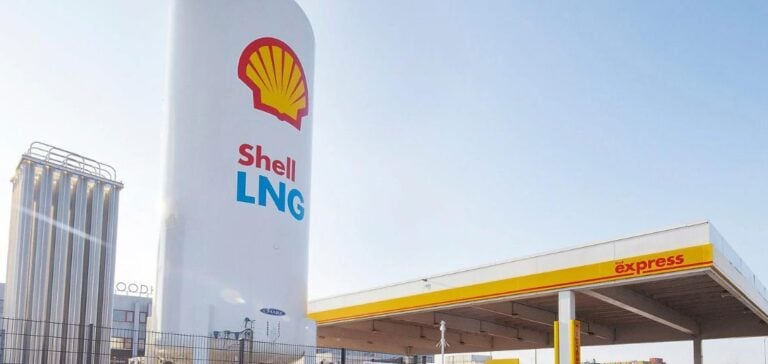At an event organized by the Center for Strategic and International Studies (CSIS), Wael Sawan stressed the importance of the stability and predictability of the US energy system in attracting global investment in liquefied natural gas (LNG) and renewable energy projects, as reported by S&P Global Commodity Insights. Shell focuses on value creation and emissions reduction in its strategic decision-making, forecasting stable oil production and peak growth in the 2030s. The company sees a significant growth opportunity for LNG, combining value and emissions reduction, withAsia presenting massive growth potential and LNG generally replacing coal. At the heart of Shell’s transformation is its downstream renewable energy business, which aims to meet lower-carbon demand from its customers.
The risks of a lack of reliability and stability
Sawan warned that the U.S. risks missing out on this opportunity if it fails to demonstrate its reliability as an energy supplier, independent of congressional administration or oversight. According to S&P Global Commodity Insights, the current pause on LNG export approvals, while having no immediate impact on supply, is undermining confidence in US LNG at a time when US allies are seeking reliable supplies to anchor their energy systems. Without this assurance, they will have to turn to other, potentially higher-emitting energy sources or other LNG suppliers, which puts the USA at a disadvantage. Joseph Majkut, Director of CSIS’s Energy Security and Climate Change Program, confirmed that he had heard similar warnings from other foreign companies and officials.
The unique role of the United States in the global gas system
The USA plays a unique role in the global gas system, thanks to its FOB cargoes, flexibility of destination and the presence of numerous traders ready to enter a much more commoditized market than was the case 8 to 10 years ago. Sawan stressed the importance of the United States’ role as a global energy supplier, particularly in the context of Russia’s invasion of Ukraine and the resulting disruption of energy trade flows. Shell evaluates not only which technologies to invest in, but also where best to deploy capital. The United States ranks highly in this respect, thanks in particular to support from the bipartisan Infrastructure Act and the Inflation Reduction Act.
The importance of continuity in energy policies
With the US presidential elections approaching in November, Sawan hopes that the future leader will see the value of these laws and continue to encourage companies like Shell to invest in what could be a huge advantage for the US over the next 10-15 years. He stressed the essential role of capitalism in creating the right incentives, while acknowledging the need for government support such as the Inflation Reduction Act in the US or the EU’s Fit for 55 package to counter fossil fuel inertia and catalyze the energy transition. Asked by S&P Global Commodity Insights about the possibility of a radical change in energy and environmental policy in the US next January, and the impact that a relaxation or withdrawal of methane and other regulations could have on Shell’s LNG export business, Sawan replied that he would wait for “concrete actions” to determine the company’s decisions. Shell will adapt where necessary, while continuing to promote the unique positioning of the US LNG market for supply to the rest of the world. With regard to methane regulation in particular, Sawan expressed Shell’s fundamental belief that every molecule of methane should be captured and put to constructive use, not simply released into the environment. The company imposes high standards on itself and will respect them even if the requirements in the country of operation are lower. Wael Sawan’s call for stability and predictability in US energy policies underlines the importance of creating an environment conducive to investment in LNG and renewable energy projects. The United States has the opportunity to play a key role in the global energy transition, but to do so it must demonstrate its reliability as an energy supplier, regardless of political changes. Companies like Shell are ready to invest on a massive scale, but they need a stable incentive framework to make it happen.
Long tail: Energy stability, investments, LNG, renewables, United States
Meta-description: Shell CEO calls for stability in US energy policies to attract investment in LNG and renewables projects, underlining the key role of the US in the global energy transition.
Countries listed: United States, Russia, Ukraine
Companies & organizations mentioned: Shell, Center for Strategic and International Studies (CSIS), US Congress, European Union (EU)
Tags: Wael Sawan, Inflation Reduction Act, bipartisan infrastructure bill, Fit for 55, methane regulations, US presidential elections, capitalism, energy transition
Themes: Business investment
Photo ideas :
1. Wael Sawan speaking at the CSIS event
2. A Shell LNG plant, symbolizing investment in this transitional energy.






















